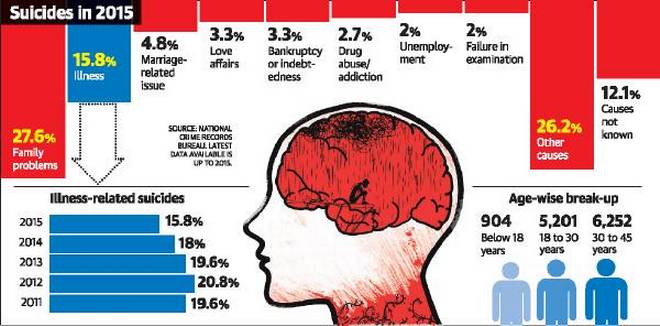7667766266
enquiry@shankarias.in
What is the issue?
What is the state of patients committing suicide?

What drives suicides?
How do we address this problem?
Source: The Hindu